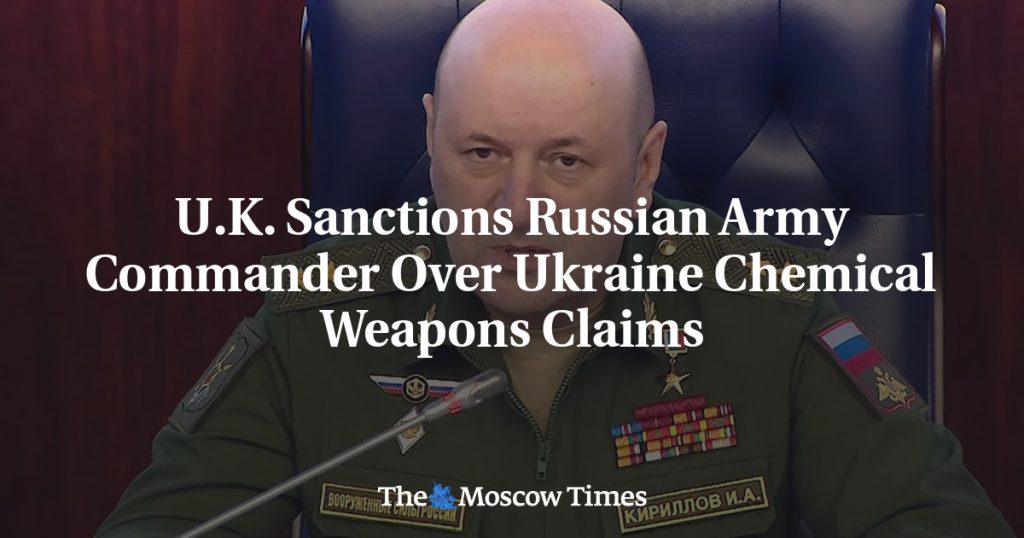The UK government has imposed sanctions on the chemical and biological arm of Russia’s Armed Forces, as well as its commander Igor Kirillov, for the alleged use of chemical weapons in Ukraine. Both the UK and the US have accused Russia of using the toxic agent chloropicrin against Ukrainian troops, in violation of the Chemical Weapons Convention (CWC). The British Foreign Ministry condemned Russia for deploying these weapons and sanctioned Kirillov and the Russian army’s Radiological, Chemical and Biological Defense unit for their involvement in the deployment of chemical weapons on the frontline. Two Russian Defense Ministry laboratories were also sanctioned for supporting the development and deployment of chemical agents.
Chloropicrin is a lung-damaging agent that can cause severe irritation to skin, eyes, and respiratory systems. The Organization for the Prohibition of Chemical Weapons (OPCW) explicitly prohibits its use, and Russia has faced pressure for more transparency regarding the alleged use of toxic weapons. While the OPCW has stated that information on the alleged use of chloropicrin in Ukraine was insufficiently substantiated, the Kremlin has denied these claims and called them baseless. Ukraine has accused Russia of increasing frontline attacks using prohibited hazardous chemicals, with over 700 cases of use reported in the previous month.
The UK sanctions against Kirillov impose an asset freeze and ban him from entering the country, while also freezing the assets of the sanctioned entities. The UK has been a strong supporter of Ukraine in its war against Russia’s invasion, committing to providing significant military aid annually for as long as needed. The sanctions are part of efforts to combat Russia’s alleged malign activity and hold those responsible for chemical weapon use accountable. Russia, despite signing and ratifying the CWC, faces international scrutiny and pressure to be more transparent about its military chemical arsenal.
The Moscow Times, an independent Russian news outlet, is facing challenges as it has been designated as an “undesirable” organization by Russia’s Prosecutor General’s Office. This move threatens the outlet’s ability to report independently, with the authorities claiming that their work discredits the decisions of the Russian leadership. The Moscow Times journalists refuse to be silenced and are seeking support from readers to continue their work. The outlet aims to provide accurate and unbiased reporting on Russia despite facing repression and attempts to curb independent journalism.
As tensions between Russia and Western countries escalate over allegations of chemical weapon use in Ukraine, the UK and US are taking steps to hold Russia accountable for its actions. The UK government’s sanctions against the Russian chemical and biological arm and its commander are part of a broader effort to combat Russia’s behavior on the international stage. The conflict in Ukraine, compounded by allegations of chemical weapon use, has further strained relations between Russia and Western nations. The sanctions serve as a message to Russia that the international community will not tolerate the use of chemical weapons and will take action against those responsible.















